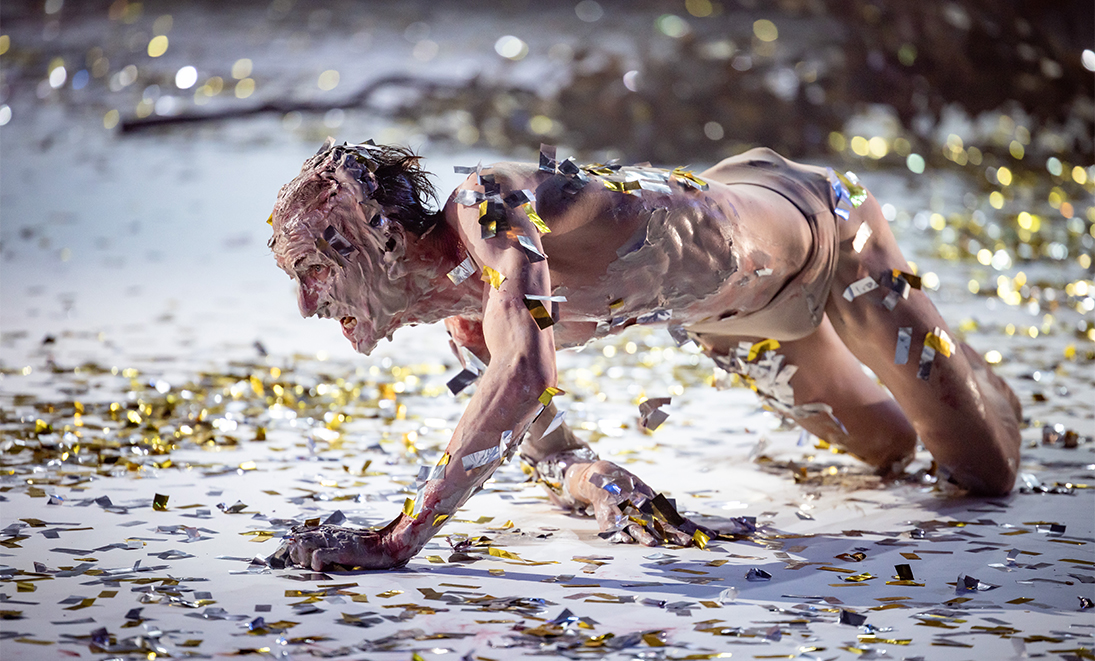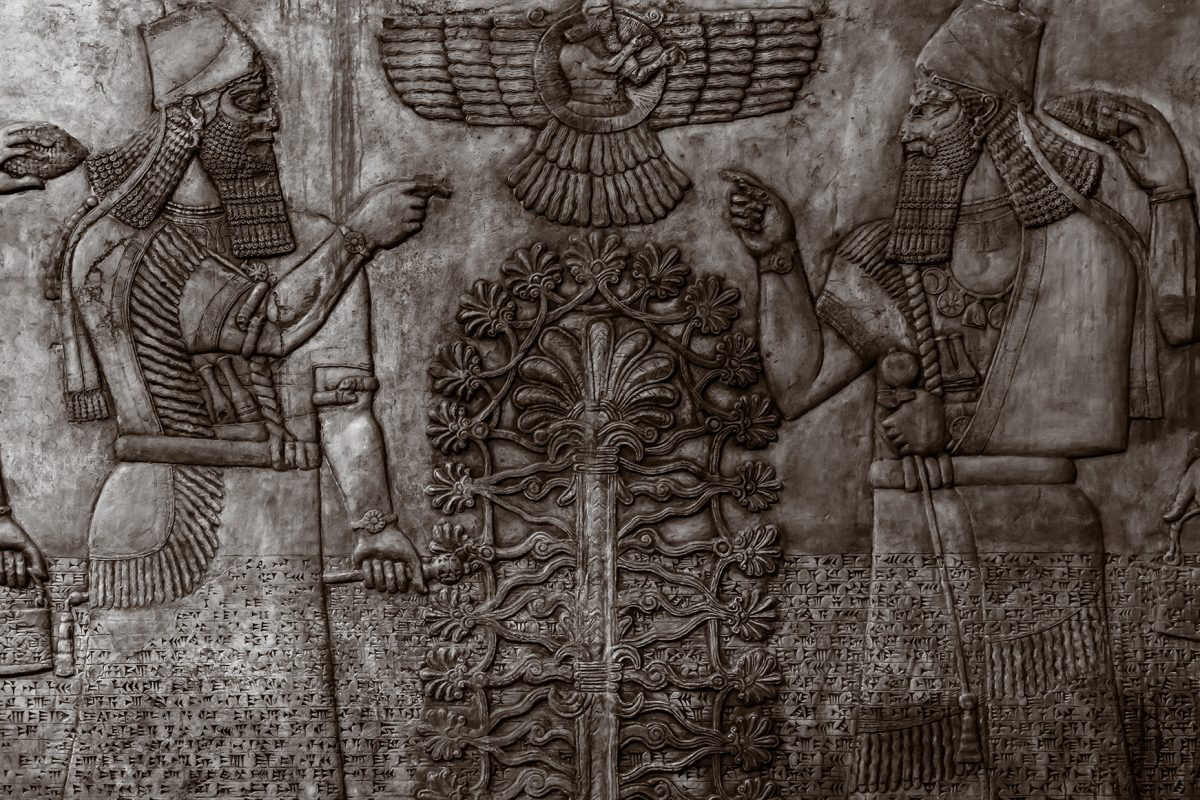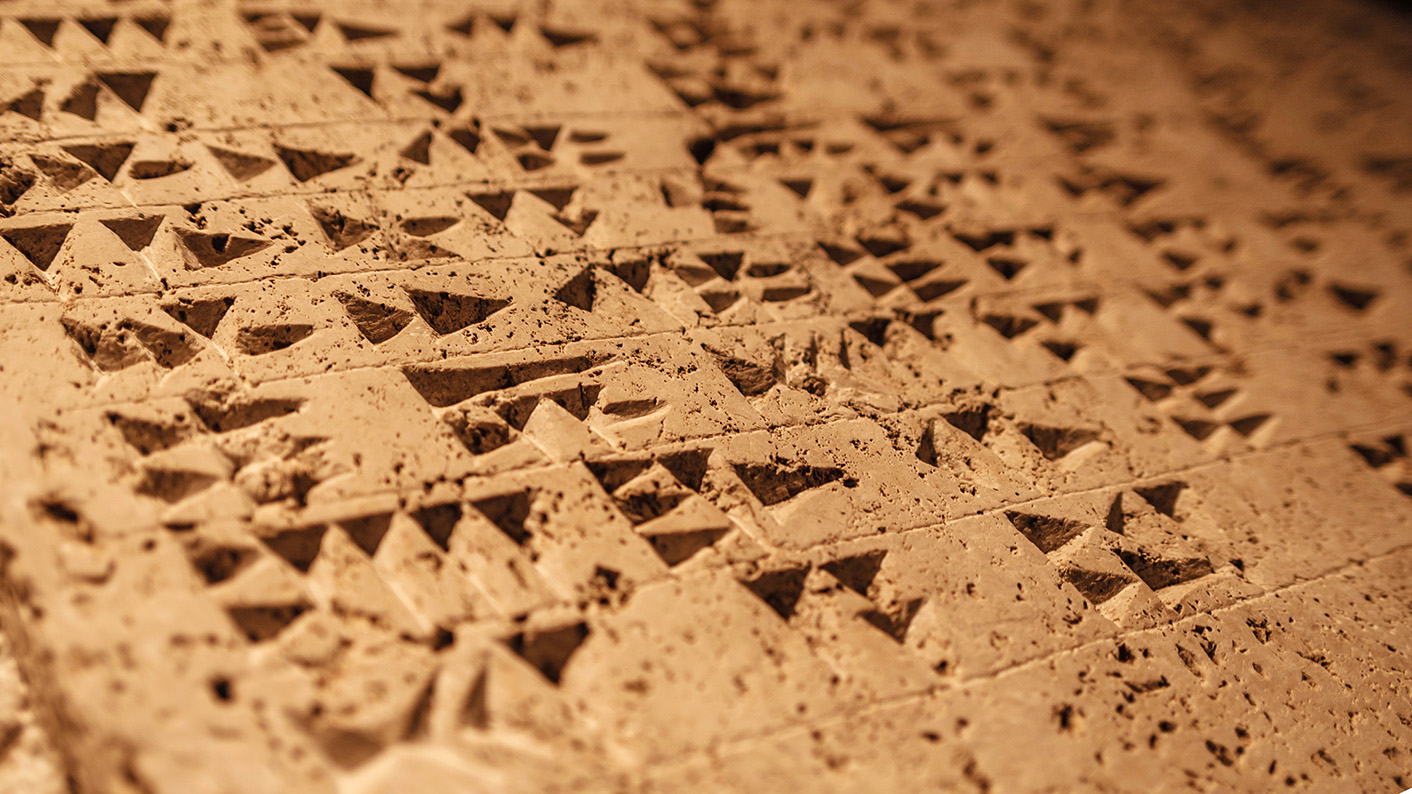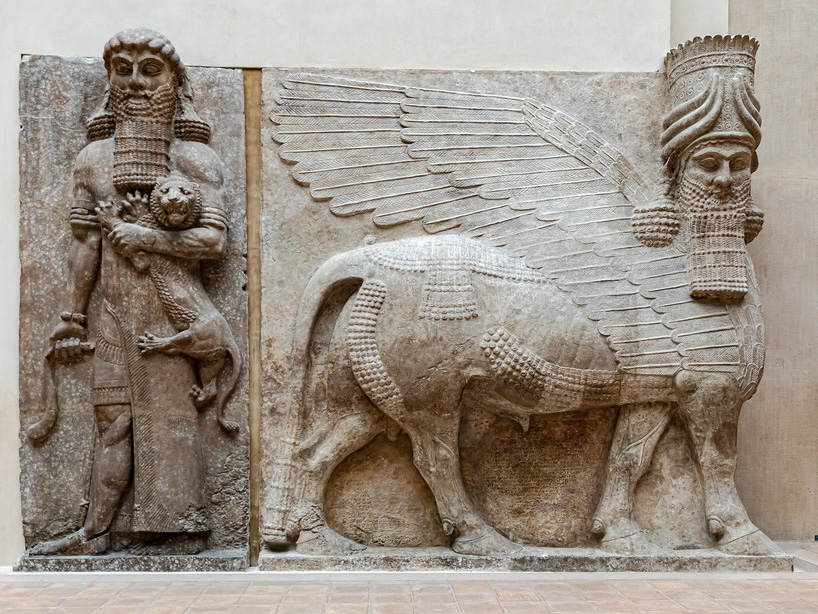A grand opera for SCO
By Jack Symonds
The compositional journey to writing Gilgamesh as a full-length opera was a protracted one. At most points in the process the whole thing could have fallen over or spun off into another project, yet I was determined to shape this unruly narrative into an evening’s worth of music-drama using everything I had to give as a composer.
But how?
For a long time I was only familiar with the Epic of Gilgamesh itself through refraction and adaptation. At school, I read Michael Ondaatje’s novel In the Skin of a Lion, its very title referencing one of the most iconic Gilgamesh images: a humbled king roaming the desert in lion skins searching for the answers to life and death. It was the first time I’d heard of The Epic, yet I only knew enough of its basic premise to make sense of Ondaatje’s use of it as the novel’s title and epigraph.
Soon after, I heard Czech composer Bohuslav Martinů’s oratorio The Epic of Gilgamesh, which was much more my style. I have always loved the late music of Martinů and this piece is one of the largest and most ambitious in his final decade. Martinů is, however, very selective with what he includes in this hour-long work. It focuses almost exclusively on the characters of Gilgamesh and Enkidu with only the briefest mention of, or cameos for, any other sung characters. This is, however, a very valid way of adapting the Epic. It is such a discursive, sprawling narrative that zeroing in on this aspect suited well Martinů’s late-period combination of starkly hieratic post-Stravinsky Oedipus Rex choral writing with a highly refined post-Impressionist shimmer.
My interest was well and truly piqued however, by the extraordinary final song of French Spectral pioneer Gérard Grisey’s Quatre chants pour franchir le seuil. In Grisey’s last work before his untimely death in 1998, the ultimate song ‘for crossing the threshold’ is a setting of the Flood narrative from the Epic of Gilgamesh. It is a vision of an apocalyptic flood engulfing the entire earth before leaving ‘all of mankind returned to clay’. I found that image unbelievably powerful in Grisey’s profound and visionary setting, so it finally pushed me to become familiar with the Epic itself.
It was as far back as 2017 that Louis Garrick, my friend and colleague who began Sydney Chamber Opera with me, proposed that we write an opera together on the Epic of Gilgamesh with himself as librettist, me as composer. Thinking back now, there’s simply no way I could have even conceived of writing it at that stage in my life, but the idea wouldn’t leave me alone. Nothing happened for ages, but it was about three years later that musical ideas relating to the Epic began to form in my mind and I started to take the subject seriously as a composer, imagining music that could tackle vast distances, character arcs and themes. Even then, it was slow going, but I used no fewer than six separate composition commissions from different organisations throughout 2019- 2022 to get the material for the opera worked up in various forms. Without this preparation, there’s simply no way I could have started from bar 1 and finished at bar 2460 as a single act of creation.
I view the whole span of my composing life from 2019 until 2024 as the ‘Gilgamesh’ period, where every work, no matter how big or small contributed immeasurably to the opera.
The final movement of a flute concerto I wrote for Ensemble Offspring and its flautist Lamorna Nightingale between 2019 and 2020 was the first fully-realised and performed music that made the final cut of the opera. You’ll hear this at the beginning of the last scene as a depiction of Gilgamesh and the boatman Ur-Shanabi rowing across the Waters of Death to reach the immortal human Uta-Napishti. A slow, woozy melody in the bass flute is endlessly reflected in a pool of microtonal ripples, attempting to find an end to its searching. I was very pleased with this part of the flute concerto and knew that if the opera ever saw the light of day, it would have to be a feature. The harmonic implications from just a few of these ‘ripples’ are refracted back into the Prelude of the whole opera and form question marks that punctuate its narrative.
In fact, the Prelude holds the musical ‘potential’ of the whole opera – as Enkidu is created by the Gods out of clay, so too is the world of harmony and timbral associations which will eventually form the mysteries and revelations several hours later. Composing it, I came to realise that a whole Gilgamesh-specific musical grammar had to be made which could be capable of adapting, continuing, rejecting, renewing or reinventing the practices of almost half a millennium of operatic writing as needed by this extraordinary story…
I view the whole span of my composing life from 2019 until 2024 as the ‘Gilgamesh’ period, where every work, no matter how big or small contributed immeasurably to the opera.
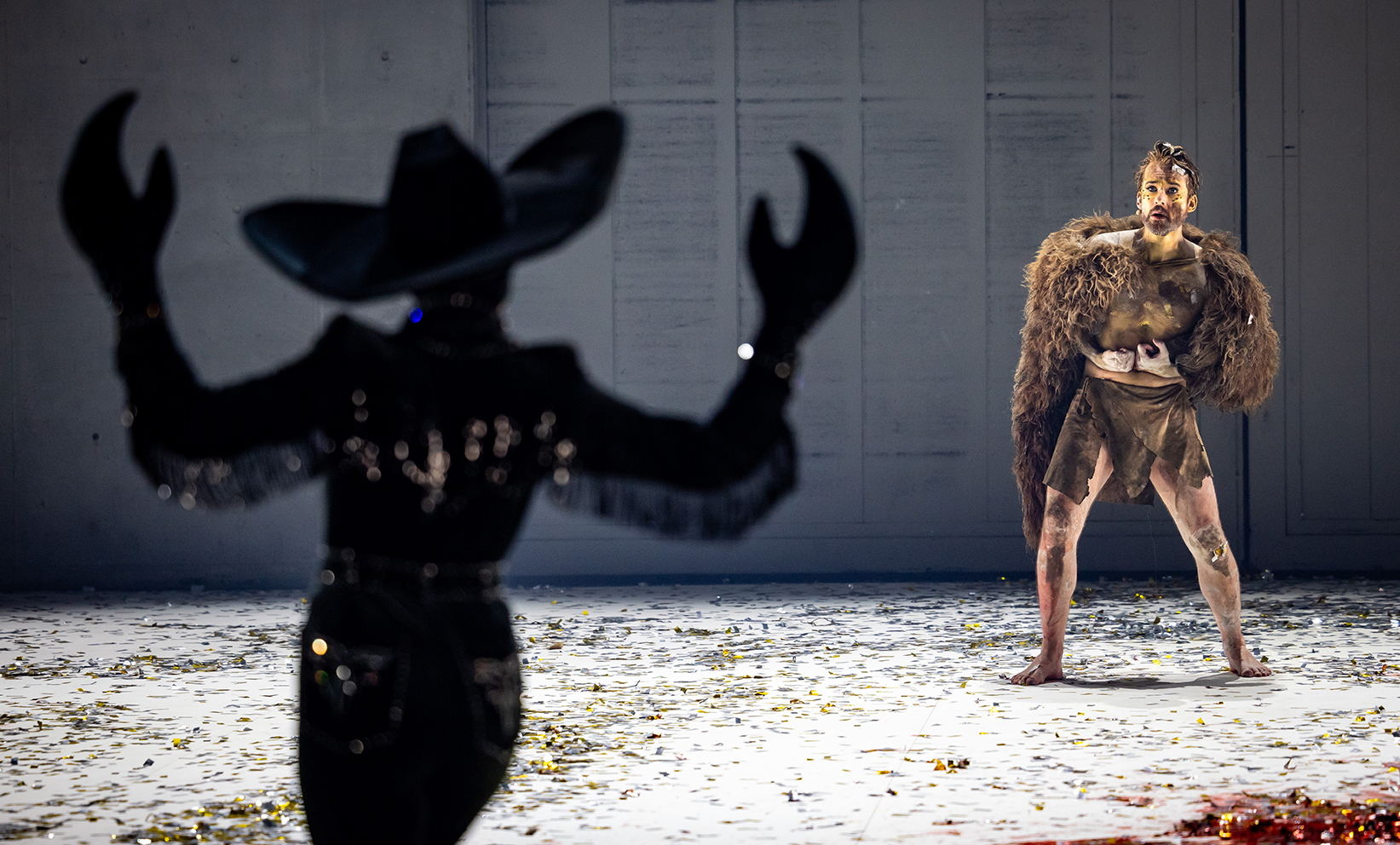
However, it wasn’t until 2021 that I finally set some text that Louis had adapted from the Epic, for a short song cycle commissioned by Phoenix Central Park. It breaks parts of the Flood narrative into three distinct songs, ending with a very slow ‘vision’: “I saw the face of the earth. There was nothing other than silence. All was turned to clay”. I remember precisely where I was when I found the notes for the phrase ‘I saw the face of the earth’. I was sitting, waiting for a Covid PCR test in Redfern when the simplicity of the gesture and the harmonic implications of this very basic material suddenly turned the key, opening vast tracts of musical territory to me. I instantly became very excited by the idea and somehow knew then how huge portions of the piece would pan out even though they would only be finished years later.
I immediately wrote a set of piano nocturnes and a solo viola sonata – small-scale, personal testing grounds for other Gilgamesh-related ideas. All of these have found their way into the opera, with an entire movement of the viola sonata forming a virtuosic obbligato to the goddess Ishtar’s ill-fated attempted seduction of Gilgamesh in the fifth scene.
The next major determining factor of the musical world of Gilgamesh then came over summer 2021/2022 when I received a commission from the Australian String Quartet (ASQ) for a big new string quartet. I was very deep in the planning and sketching of a lot more of Gilgamesh’s material by then, but it was in a highly volatile state; it didn’t have a fixed instrumentation, duration or form – it was like a kind of inchoate lava, incapable of behaving in a rational way, no matter what I did to it. However, I felt sure its essence was ‘right’ for various scenes, characters, motifs and philosophical/existential ideas I needed to create in the opera.
Conceiving and composing the string quartet naturally fused with many of these remaining Gilgamesh ideas, bringing them into sharp focus, giving them a definite and precise character and affixing them to the colour of a string quartet—specifically the colour of the ASQ itself.
About 90% of the 20-minute string quartet found its way into the opera, spread throughout its duration. There is no chronological link between the unfolding of the quartet and the opera, although the small-scale flow of various sections is maintained in both. After hearing a performance of this piece by the ASQ in Canberra, I conceived an ‘alternate ending’ to it on the train trip back which I also knew would also be the ending of the whole opera, taking this long-conceived material into a barcarole that laps into infinity.
In the quartet, the characters of Ishtar and the half-human, half-animal Enkidu are explored thoroughly, even though the narrative sequences in the opera are totally re-made into an abstract instrumental form.
As soon as I heard the ASQ play the piece in rehearsal, I knew I had found the heart of the soundworld of ‘Gilgamesh’. It was hugely inspiring to experience this material coming vividly to life, and I wrote the rest of the opera with the ASQ’s colour and boundless virtuosity uppermost in my mind.
Writing for the combined forces of Australian String Quartet and Ensemble Offspring has meant that the instrumental lines have gained a complexity and detail quite different from those of an ‘Opera’ orchestra; each scene is focused around specific colours and notes which branch out like an arboreal system to encompass the enormous expressive shifts and character arcs in the Epic. At present, I simply can’t imagine this piece not being played by these people!
Balancing the mechanism and history of the genre (love duet, Triumphal Parade, arias of many kinds) with more extended vocalism, instrumental colour and electronic spatialisation is a fundamental part of the opera’s architecture. The addition of live electronics has allowed for a further layer of transformation: from the human to the fantastical/metahuman/eternal and back. Enkidu’s musical journey in particular begins with non-traditional vocal sound, synthesised with instrumental timbre, before being ‘humanised’ into learned singing. To do this, I have worked with the electronics designer and sound engineer Ben Carey who has realised two of my previous pieces. Ben has an acute understanding of my musical desires and I have written him a ‘part’ that requires him to capture bits of live sung and played music and work his magic to mutate them into sounds that take to a logical, superhuman extreme the organic nature of performance.
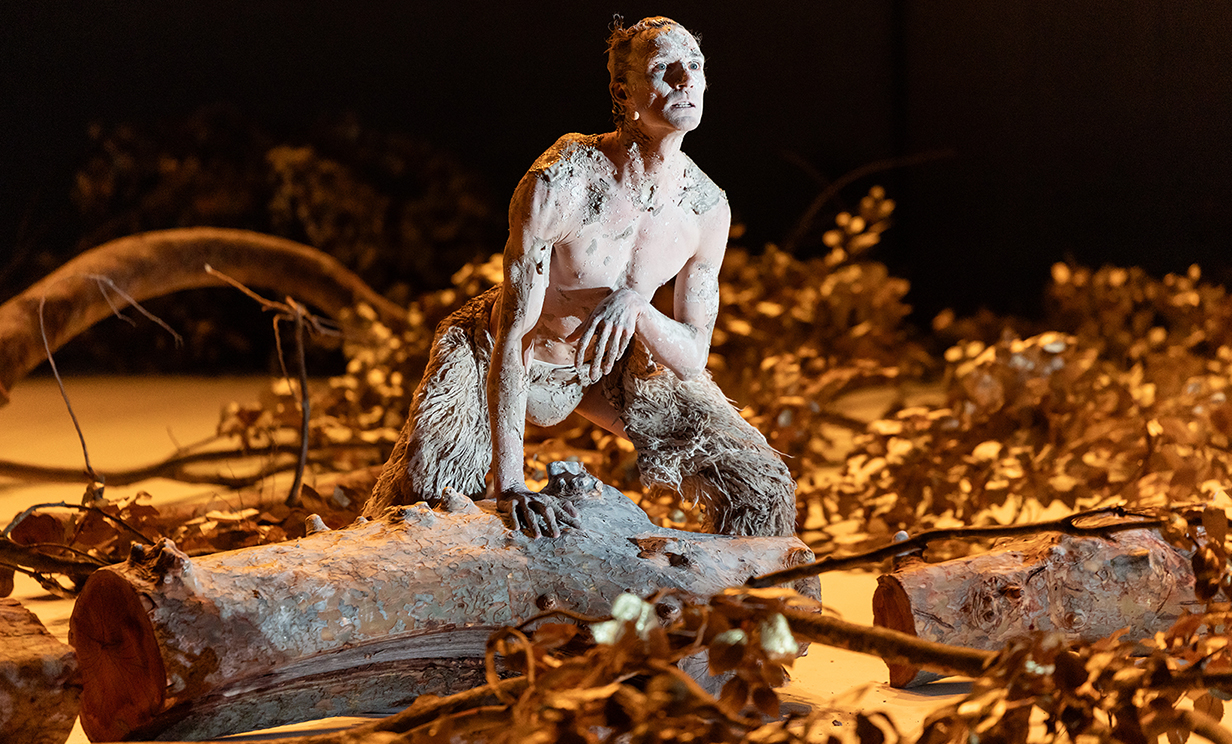
The final and most important factor was writing the roles for singers with whom I’ve worked closely for years. Conducting operas for months at a time with the same performers every day, I have observed close-up the fine grain of various singers’ voices and what they do best. Thus, the musical personalities and expressive proclivities of the five singers who are premiering this opera have been encoded with love and admiration into the fabric of the score.
Mitchell Riley sang the first ever note at SCO in my first opera Notes from Underground (2011) and has returned from his home in France year after year to astonish us all with his near-impossible physical and vocal skills. He was here last for my Voss-inspired solo piece The Shape of the Earth, where he embodied every note and gesture with a true mastery. Our collaboration has meant so much to me; we have genuinely influenced each other through years of working on different pieces, each seemingly more extreme than the last. In composing the character of Enkidu for him, I take him from the most bestial-sounding breaths to a kind of lyricism-by-degrees that marks Enkidu’s journey to humanity. The way Mitch has fused his voice and his bodily expression of it is the gold standard of a fully-realised performer.
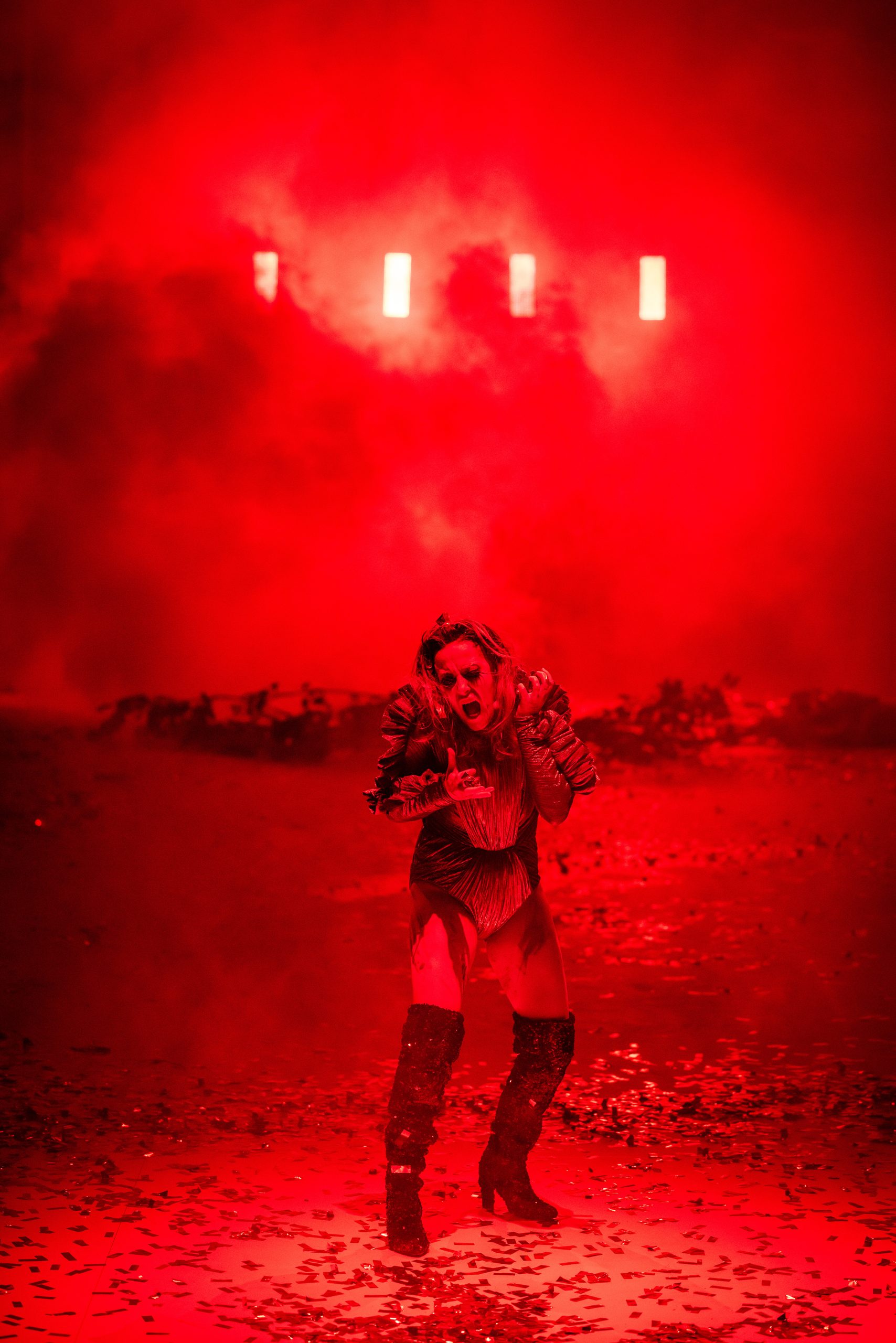
Jane Sheldon has likewise influenced my writing hugely, after working with her closely once she re-made Sydney her home after a decade in New York. From performing haunting one-woman monodramas to leading stratospheric ensemble writing, she personifies everything SCO stands for, and her sheer variety of sound has been in the back of mind for ages to explore in one single piece. In Ishtar’s huge scene which begins Act 2, I have attempted a multifaceted portrait of everything Jane does; the softest, purest, most ethereal writing evolves into earthy, passionate seduction, giving way to what I have termed the ‘Janewail’ in the score: ‘a continuous vocal ribbon of half-singing, half-screaming capable of every dynamic and register in a permanent glissando.’ I asked Jane to come up with a sound that could destroy a city and summon the Bull of Heaven… this is the result!
My close and intense performing relationship with Jessica O'Donoghue is also strongly represented in this score by having her play two utterly different characters. The sensual Shamhat, ‘taming' Enkidu into humanity with the force of her voice and body, and the mysterious Uta-Napishti, an eternal human singing forever on an island, delivering pronouncements about time and eternity. After years of giving up performing opera due its rigidity and ossified allegiance to the past, watching Jess re-find a part of her voice with SCO over the last decade has been a wonder to behold and she has been a close part of the family ever since. These two roles encapsulate everything I love about her singing and commitment to uniting it with physicality and character. Audiences won’t believe these characters all coexist within a single performer on the same evening!
It also happens that Jane and Jess absolutely adore singing together in complex, pristine harmony so it was a no-brainer to include them doing precisely that in the scene where Gilgamesh is confronted by two Scorpions who guard the Mountains of Mashu. But what should a Scorpion sound like? In this opera, they are backed up by a virtuosic percussion part of quickly rubbed-together pieces of Sandpaper (only narrowly avoiding starting a small fire from the friction) and an ‘insectoid wind’ of violins lightly running their fingers over the strings to find a kind of metallic shimmer. These Scorpions sing in strange intervals, as if ‘testing’ Gilgamesh to find the cracks in their harmonic armour.
Although this is Daniel Todd’s first SCO show, I am so pleased to be able to write for a ‘tenor who goes there’, as it were – someone unafraid to tackle the extremities of range, colour and expression with real physical engagement. After we worked on the Captain in Wozzeck, I knew I’d found the missing vocal ingredient of this opera. Creating the role of the monster Humbaba, I have his voice electronically live- processed and distorted, to which he has brought consummate artistry.
Dan is also made a very good point in rehearsal about a part that gave me immodest pleasure to compose – in the third scene, two Courtiers praise Gilgamesh over and over, demonstrating his tyrannical rule over the city of Uruk. They sing an invented ‘National Anthem of Uruk’, which acts as a giant chaconne throughout a long and complex scene, as if no part of the city can escape the grip of Gilgamesh-as-dictator. The National Anthem itself is founded upon a 12-note bass line, yet is entirely, almost garishly tonal on top. The result is a melody that is very difficult to sing and, as Dan pointed out, quite the opposite of the purpose of a national anthem which is meant to be able to be sung by the majority of the populace! The built-in strain of these poor Courtiers to ‘keep up’ with the shifting harmonic landscape has been most enjoyable to watch taking shape in rehearsal.
Last but certainly not least, Jeremy Kleeman, who plays Gilgamesh himself, is simply one of my favourite young singers in the world, and although this is ‘only’ his third SCO show, he already feels like one of our own in every artistic way. In this enormous role, I have tried to explore every facet of his voice, from its uncannily accurate and clear bass end to its resonant and plangent top. I knew that I needed the love duet between Gilgamesh and Enkidu to end on a unison note that was the ‘sweet spot’ of both their ranges: from my experience of Jeremy and Mitch, this note was middle C#, and I built the entirety of the fourth scene backwards from this moment of vocal harmoniousness. Gilgamesh has three big arias throughout the opera, each of which takes him further and further into vulnerability and break-down. A love song, a song of loss, and a song of failure. Knowing this, I plotted the topography of Jeremy’s voice and sent him on a journey that he alone could make. What he brings to his role absolutely floors me every time I hear him sing it.
Writing a large piece in such a specific manner has allowed me to push every one of the 16 performers on stage to their characteristic limits, and open myself up to explore all the things I love about music itself in one single work.
To shape air into sound, to propel sound into time, and to use the resulting music to interrogate life. These are any composer’s reasons for creating, and Gilgamesh has consumed and distilled years of thought into a vast, complex, impossible and human journey.
Keep in touch
General Inquiries
- contact@sydneychamberopera.com
-
SCO, Carriageworks
PO Box 3035 Redfern, NSW 2016
Postal Address -
SCO, Carriageworks
245 Wilson St Eveleigh, NSW 2015
Resident Address - (02) 8571 9106
